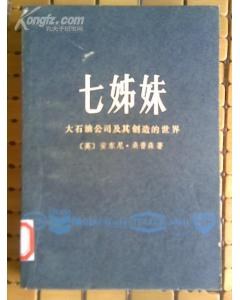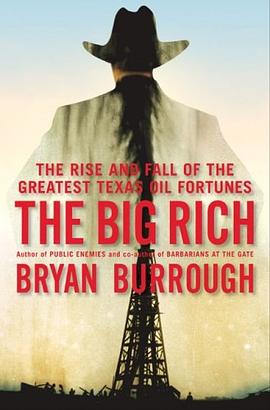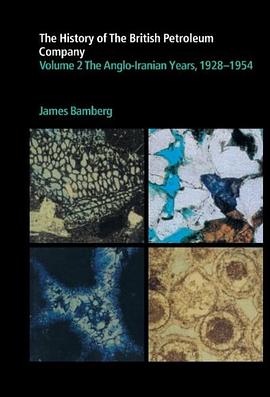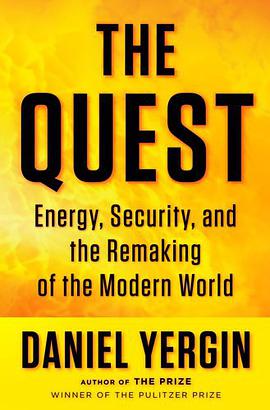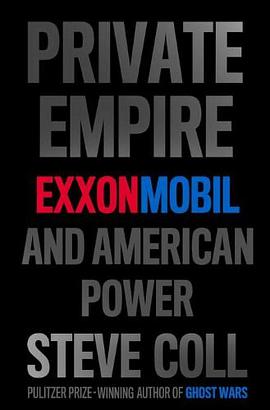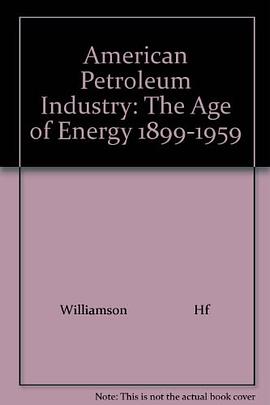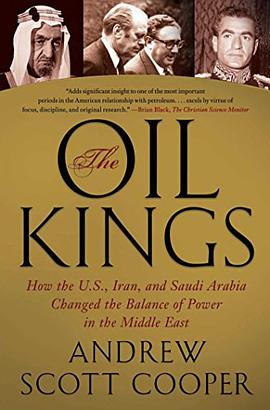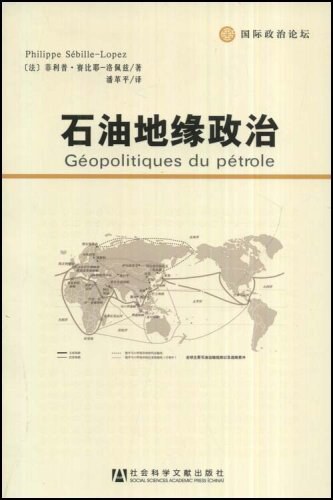石油
The Big Rich 豆瓣
作者:
Bryan Burrough
Penguin Press HC, The
2009
- 1
In The Big Rich , bestselling author and Vanity Fair special correspondent Bryan Burrough chronicles the rise and fall of one of the great economic and political powerhouses of the twentieth century—Texas oil. By weaving together the epic sagas of the industry’s four greatest fortunes, Burrough has produced an enthralling tale of money, family, and power in the American century.
Known in their day as the Big Four, Roy Cullen, H. L. Hunt, Clint Murchison, and Sid Richardson were all from modest backgrounds, and all became patriarchs of the wealthiest oil families in Texas. As a class they came to be known as the Big Rich, and together they created a new legend in America—the swaggering Texas oilman who owns private islands, sprawling ranches and perhaps a football team or two, and mingles with presidents and Hollywood stars.
The truth more than lives up to the myth. Along with their peers, the Big Four shifted wealth and power in America away from the East Coast, sending three of their state’s native sons to the White House and largely bankrolling the rise of modern conservatism in America. H. L. Hunt became America’s richest man by grabbing Texas’s largest oilfield out from under the nose of the man who found it; he was also a lifelong bigamist. Clint Murchison entertained British royalty on his Mexican hacienda and bet on racehorses—and conducted dirty deals—with J. Edgar Hoover. Roy Cullen, an elementary school dropout, used his millions to revive the hapless Texas GOP. And Sid Richardson, the Big Four’s fun-loving bachelor, was a friend of several presidents, including, most fatefully, Lyndon Johnson.
The Big Four produced offspring who frequently made more headlines, and in some cases more millions, than they did. With few exceptions, however, their fortunes came to an end in a swirl of bitter family feuds, scandals, and bankruptcies, and by the late 1980s, the era of the Big Rich was over. But as Texas native Bryan Burrough reveals in this hugely entertaining account, the profound economic, political, and cultural influence of Texas oil is still keenly felt today.
Known in their day as the Big Four, Roy Cullen, H. L. Hunt, Clint Murchison, and Sid Richardson were all from modest backgrounds, and all became patriarchs of the wealthiest oil families in Texas. As a class they came to be known as the Big Rich, and together they created a new legend in America—the swaggering Texas oilman who owns private islands, sprawling ranches and perhaps a football team or two, and mingles with presidents and Hollywood stars.
The truth more than lives up to the myth. Along with their peers, the Big Four shifted wealth and power in America away from the East Coast, sending three of their state’s native sons to the White House and largely bankrolling the rise of modern conservatism in America. H. L. Hunt became America’s richest man by grabbing Texas’s largest oilfield out from under the nose of the man who found it; he was also a lifelong bigamist. Clint Murchison entertained British royalty on his Mexican hacienda and bet on racehorses—and conducted dirty deals—with J. Edgar Hoover. Roy Cullen, an elementary school dropout, used his millions to revive the hapless Texas GOP. And Sid Richardson, the Big Four’s fun-loving bachelor, was a friend of several presidents, including, most fatefully, Lyndon Johnson.
The Big Four produced offspring who frequently made more headlines, and in some cases more millions, than they did. With few exceptions, however, their fortunes came to an end in a swirl of bitter family feuds, scandals, and bankruptcies, and by the late 1980s, the era of the Big Rich was over. But as Texas native Bryan Burrough reveals in this hugely entertaining account, the profound economic, political, and cultural influence of Texas oil is still keenly felt today.
The History of the British Petroleum Company 豆瓣
作者:
Bamberg, James
1994
- 2
Based on unrestricted access to papers and personnel at BP, as well as numerous other sources, this second volume of BP's history aims to be an honest and comprehensive examination of the company in the period 1928-1954. Such a history inevitably touches on many different historical interests ranging from international relations to social, economic, political and military topics, primarily in Britain and the Middle East. The 1994 book includes penetrating insights into the direction and management of the company, the achievements and shortcomings of successive chairmen, and the relationship between the company and its major shareholder, the British Government. It also deals in detail with matters which have retained an aura of controversy and mystique long after their occurrence, most notably the international petroleum cartel which sought to control world oil markets, and the major international crisis arising from Iran's oil nationalisation.
The Quest 豆瓣
作者:
Daniel Yergin
Penguin Press
2011
- 9
In this gripping account of the quest for the energy that our world needs, Daniel Yergin continues the riveting story begun in his Pulitzer Prize-winning book, The Prize . A master storyteller as well as a leading energy expert, Yergin shows us how energy is an engine of global political and economic change. It is a story that spans the energies on which our civilization has been built and the new energies that are competing to replace them. From the jammed streets of Beijing to the shores of the Caspian Sea, from the conflicts in the Mideast to Capitol Hill and Silicon Valley, Yergin takes us into the decisions that are shaping our future. The drama of oil-the struggle for access, the battle for control, the insecurity of supply, the consequences of use, its impact on the global economy, and the geopolitics that dominate it-continues to profoundly affect our world.. Yergin tells the inside stories of the oil market and the surge in oil prices, the race to control the resources of the former Soviet empire, and the massive mergers that transformed the landscape of world oil. He tackles the toughest questions: Will we run out of oil? Are China and the United States destined to come into conflict over oil? How will a turbulent Middle East affect the future of oil supply? Yergin also reveals the surprising and sometimes tumultuous history of nuclear and coal, electricity, and the "shale gale" of natural gas, and how each fits into the larger marketplace. He brings climate change into unique perspective by offering an unprecedented history of how the field of climate study went from the concern of a handful of nineteenth- century scientists preoccupied with a new Ice Age into one of the most significant issues of our times. He leads us through the rebirth of renewable energies and explores the distinctive stories of wind, solar, and biofuels. He offers a perspective on the return of the electric car, which some are betting will be necessary for a growing global economy. The Quest presents an extraordinary range of characters and dramatic stories that illustrate the principles that will shape a robust and flexible energy security system for the decades to come. Energy is humbling in its scope, but our future requires that we deeply understand this global quest that is truly reshaping our world.
Private Empire 豆瓣
作者:
Steve Coll
Penguin Press HC, The
2012
- 5
In Private Empire Steve Coll investigates the largest and most powerful private corporation in the United States, revealing the true extent of its power. ExxonMobil's annual revenues are larger than the economic activity in the great majority of countries. In many of the countries where it conducts business, ExxonMobil's sway over politics and security is greater than that of the United States embassy. In Washington, ExxonMobil spends more money lobbying Congress and the White House than almost any other corporation. Yet despite its outsized influence, it is a black box.
Private Empire pulls back the curtain, tracking the corporation's recent history and its central role on the world stage, beginning with the Exxon Valdez accident in 1989 and leading to the Deepwater Horizon oil spill in the Gulf of Mexico in 2010. The action spans the globe, moving from Moscow, to impoverished African capitals, Indonesia, and elsewhere in heart-stopping scenes that feature kidnapping cases, civil wars, and high-stakes struggles at the Kremlin. At home, Coll goes inside ExxonMobil's K Street office and corporation headquarters in Irving, Texas, where top executives in the "God Pod" (as employees call it) oversee an extraordinary corporate culture of discipline and secrecy.
The narrative is driven by larger than life characters, including corporate legend Lee "Iron Ass" Raymond, ExxonMobil's chief executive until 2005. A close friend of Dick Cheney's, Raymond was both the most successful and effective oil executive of his era and an unabashed skeptic about climate change and government regulation.. This position proved difficult to maintain in the face of new science and political change and Raymond's successor, current ExxonMobil chief executive Rex Tillerson, broke with Raymond's programs in an effort to reset ExxonMobil's public image. The larger cast includes countless world leaders, plutocrats, dictators, guerrillas, and corporate scientists who are part of ExxonMobil's colossal story.
The first hard-hitting examination of ExxonMobil, Private Empire is the masterful result of Coll's indefatigable reporting. He draws here on more than four hundred interviews; field reporting from the halls of Congress to the oil-laden swamps of the Niger Delta; more than one thousand pages of previously classified U.S. documents obtained under the Freedom of Information Act; heretofore unexamined court records; and many other sources. A penetrating, newsbreaking study, Private Empire is a defining portrait of ExxonMobil and the place of Big Oil in American politics and foreign policy.
Private Empire pulls back the curtain, tracking the corporation's recent history and its central role on the world stage, beginning with the Exxon Valdez accident in 1989 and leading to the Deepwater Horizon oil spill in the Gulf of Mexico in 2010. The action spans the globe, moving from Moscow, to impoverished African capitals, Indonesia, and elsewhere in heart-stopping scenes that feature kidnapping cases, civil wars, and high-stakes struggles at the Kremlin. At home, Coll goes inside ExxonMobil's K Street office and corporation headquarters in Irving, Texas, where top executives in the "God Pod" (as employees call it) oversee an extraordinary corporate culture of discipline and secrecy.
The narrative is driven by larger than life characters, including corporate legend Lee "Iron Ass" Raymond, ExxonMobil's chief executive until 2005. A close friend of Dick Cheney's, Raymond was both the most successful and effective oil executive of his era and an unabashed skeptic about climate change and government regulation.. This position proved difficult to maintain in the face of new science and political change and Raymond's successor, current ExxonMobil chief executive Rex Tillerson, broke with Raymond's programs in an effort to reset ExxonMobil's public image. The larger cast includes countless world leaders, plutocrats, dictators, guerrillas, and corporate scientists who are part of ExxonMobil's colossal story.
The first hard-hitting examination of ExxonMobil, Private Empire is the masterful result of Coll's indefatigable reporting. He draws here on more than four hundred interviews; field reporting from the halls of Congress to the oil-laden swamps of the Niger Delta; more than one thousand pages of previously classified U.S. documents obtained under the Freedom of Information Act; heretofore unexamined court records; and many other sources. A penetrating, newsbreaking study, Private Empire is a defining portrait of ExxonMobil and the place of Big Oil in American politics and foreign policy.
History of the Standard Oil Company of New Jersey 豆瓣
作者:
Ralph W. Hidy
/
Muriel E. Hidy
…
Joanna Cotler Books
1955
American Petroleum Industry 豆瓣
作者:
Williamson Hf
Northwestern University Press
1964
- 1
The Oil Kings 豆瓣
作者:
Andrew Scott Cooper
Simon & Schuster
2012
- 9
“Relying on a rich cache of previously classified notes, transcripts, cables, policy briefs, and memoranda, Andrew Cooper explains how oil drove, even corrupted, American foreign policy during a time when Cold War imperatives still applied,”* and tells why in the 1970s the U.S. switched its Middle East allegiance from the Shah of Iran to the Saudi royal family. Amid the oil shocks of the early 1970s, there was one man the U.S. could rely on: the Shah of Iran. The Shah sold us oil; we sold him weapons. But the U.S. and other industrialized economies could not tolerate repeated annual double digit increases in oil prices. During the 1976 election campaign, President Gerald Ford decided that he had to find a country that would break the OPEC monopoly and sell the U.S. oil more cheaply. On the advice of Treasury Secretary William Simon—and against the advice of Secretary of State Henry Kissinger—Ford made a deal to sell advanced weaponry to the Saudis in exchange for a more moderate price hike in oil. The Shah’s economy was destabilized, and disaffected elements mobilized to overthrow him. The U.S. had embarked on a long relationship with the autocratic Saudi kingdom that continues to this day. Brilliantly reported and filled with astonishing details about some key figures of the time, The Oil Kings is a new history of an era that we thought we knew, an era when momentous events occurred that still reverberate today.
